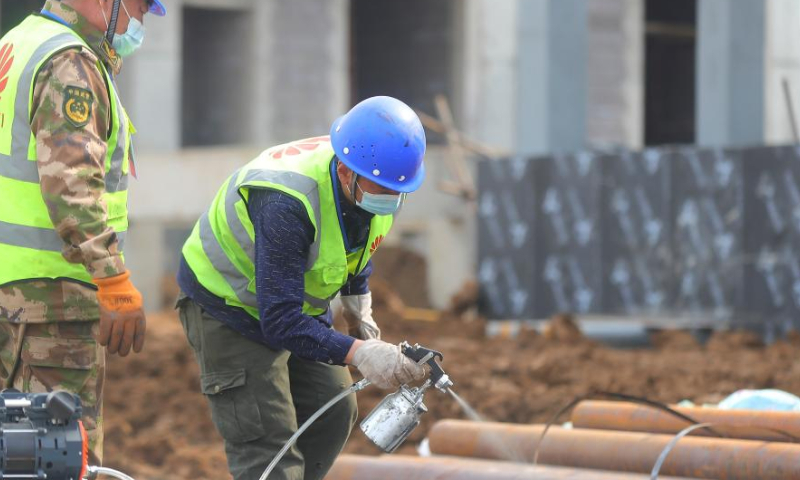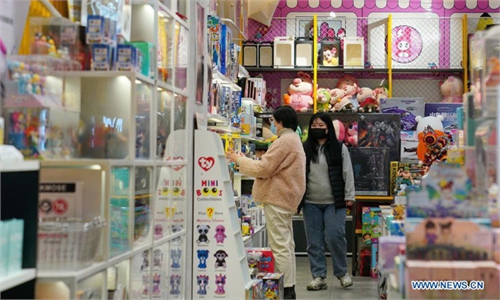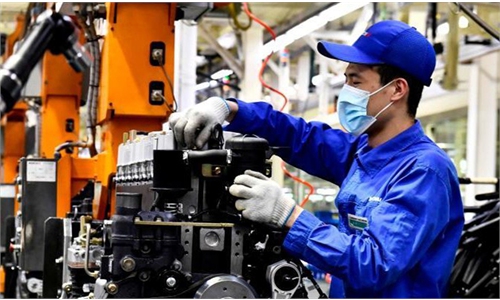
People work on the construction site of an artificial intelligence center in Shenyang, northeast China's Liaoning Province, April 29, 2022.
Despite the challenges from COVID-19 pandemic, Liaoning has been strengthening infrastructure construction and speeding up the construction of major projects this year. (Xinhua/Yang Qing)
In the first four months of 2022, China’s fixed-asset investment saw a year-on-year increase of 6.8 percent to 15.4 trillion yuan ($2.27 trillion), down 2.5 percentage points compared with the first quarter due to the Omicron impact, data from National Bureau of Statistics (NBS) showed on Monday.
According to the NBS, on a monthly basis, the country's fixed-asset investment declined 0.82 percent in April from March.
NBS spokesperson Fu Linghui said that affected by the new wave of the epidemic, combined with geopolitical uncertainty, China may face more economic pressure, but the country’s stable long-term economic fundamentals have not changed.
Data showed that infrastructure investment increased 6.5 percent from January to April year-on-year, down from the 8.5-percent growth in the first three months.
Investment in manufacturing expanded by 12.2 percent in the first four months with high-tech industries recording one of the largest increases, picking up 25.9 percent from the same time last year, becoming a strong driver of the fixed-asset investment.
Real estate development investment narrowed 2.7 percent year-on-year, with the commercial floor space sold falling 20.9 percent.
Fu noted that despite the impact caused by the coronavirus on the country’s economy, there remain more favorable conditions for stabilizing the macroeconomic outlook and achieving the expected development goals.
He believed that investment, consumption and exports will maintain a growth in the future, especially the investment, which will continue to become an important support factor for the short-term stable growth of the country’s economy.
Amid the resurgence of the COVID-19 flare-ups, authorities have rolled out a series of favorable policies to boost investment, including issuing special-purpose bonds for local governments and injecting confidence in real estate market by lowering interest rate floors on mortgages for first-time home buyers.
Global Times


